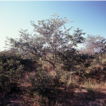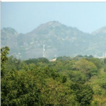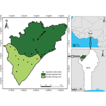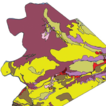In this collection

|
Papers published: 6 Documents added: 0 Total pages: 133 Printed version: Paperback Unique views: 6344 Total views: 8990 |
Outline:
At the beginning of the 19th century, the African continent was mostly pristine and roaming with wildlife without boundaries. As the human population increased, pressure has been put on the natural resources available. However, Africa still has large areas with near-natural vegetation and wildlife left. The continent has a large diversity of plant and animal life with several biodiversity hotspots. In addition, the African continent has, in the Congo basin, the largest remaining extension of continuous tropical rainforest globally. Africa is part of three floristic regions (Palaeotropis, Palaearctic and Capensis), adding to the high diversity of the continent.
The rapid population growth and consequent land use changes make the African continent a hotspot of change urgently requiring more research. There is still a narrow window of opportunity to collect more baseline biodiversity data on natural and near natural vegetation as well as to monitor the long-term changes as a result of anthropogenic activities and climate change. It is therefore of crucial importance to conduct research on African vegetation and to publish the results internationally to assist in bridging the data and knowledge gaps that currently exist.
Scientific publications are a key part of every researcher’s work. However, vegetation surveys and synecological research from Africa are currently underrepresented in scientific literature, resulting in inadequate knowledge and data on the continent. Additionally, even when research is conducted by African researchers, their research outputs are currently grossly underrepresented in the international scientific space; both at conferences and in scientific publications. As a result, a lot of data is lost to the broader scientific community as it remains unpublished.
This Special Collection in “Vegetation Classification and Survey” will focus on distribution patterns of natural vegetation as well as the dynamics resulting from the increasing human impact. In agreement with the scope of the journal, papers should develop, test or apply vegetation typologies or present vegetation-plot databases or tools in ecoinformatics. Typological approaches at any spatial scale from synusiae via phytocoenoses and landscapes to biomes are possible. Particularly suitable are the following topics:
Current vegetation patterns
- Classification
- Gradient analysis of vegetation patterns
- Biogeography of vegetation
- Remote sensing of vegetation patterns
Ecoinformatics
- Vegetation-plot databases
- Methods and programs in ecoinformatics
Typological perspective on vegetation change
- Land cover change
- Dynamics of phytocoenoses
- Vegetation typologies as conservation tool
Procedures and deadlines:
- 22/09/2021: First announcement at the 2021 IAVS Symposium
- 19/10/2021: Publication of the call
- 21/01/2022 Submission of preliminary abstracts in the style of the journal to the Chair of the Collection Editors, Reginal Guuroh (rtguuroh@csir-forig.org.gh)
- 15/02/2022: Feedback to authors on acceptance of abstracts/ proposals
- 30/06/2022: Submission of invited manuscripts
- Manuscripts will undergo peer-review and be published on a one-by-one basis once accepted
- We anticipate that we will conclude the whole Special Collection in the first half of 2023 with the publication of a synthesising editorial
Please note that “Vegetation Classification and Survey” is a gold open access journal, which normally requests article processing charges (APCs) from authors. Thanks to the generous support of the IAVS (www.iavs.org), articles submitted until the end of 2022 are exempt from APCs, provided the first author is an IAVS member, while membership is free of charge for scientists from most African countries.






